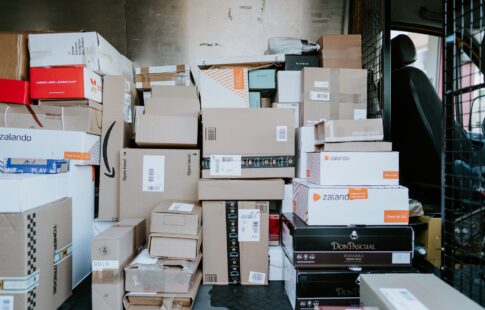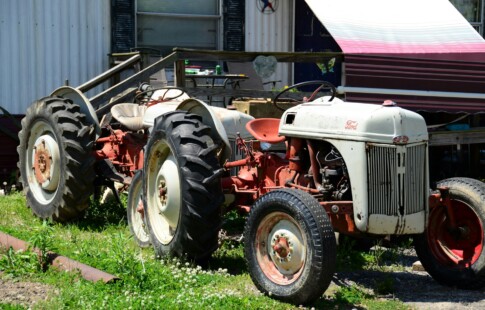Vegan Pregnancy: Everything You Need to Know
We are reader-supported. When you buy through links on our site, we may earn affiliate commission.
Bringing a new life into the world is a personal and exciting journey, and as the world becomes increasingly conscious of environmental challenges, you may be seeking more sustainable choices, like the possibility of a vegan pregnancy. Veganism, a lifestyle rooted in compassion for animals and the planet, has gained popularity for its positive impact.
If you’re considering adopting a plant-based diet or are wondering how a vegan pregnancy may affect you and your developing baby, it’s important to equip yourself with the knowledge to make this time as enjoyable as possible.
Understanding Veganism
Before jumping into the topic of vegan pregnancy, it’s important to understand what veganism really means. It’s not just about what you eat – it’s a whole way of living that aims to be kind to animals in every aspect of your life. Veganism doesn’t only cover the food you put on your plate but also the clothes you wear and the products you use.
Veganism involves avoiding animal products, including meat, dairy, eggs and honey and embracing plant-based alternatives. For many people, veganism extends to avoiding purchasing any products tested on animals or made from fur, wool or leather. When considering a vegan pregnancy, a balanced diet is vital for health.
Meeting Pregnancy Needs
One common concern about a vegan pregnancy revolves around getting the necessary nutrients for both the mother and the developing baby. Rest assured, a well-planned vegan diet can provide all the essential nutrients needed during pregnancy.
Some key nutrients include:
- Protein: Legumes, tofu, quinoa, nuts and seeds offer a protein source supporting maternal and fetal tissue growth. Pregnant women should aim for 70 grams of protein during the second and third trimester.
- Calcium: Fortified plant-based milks, leafy greens, almonds and fortified orange juice provide calcium for healthy bone development.
- Iron: Dark leafy greens, chickpeas, lentils and fortified cereals are rich in iron, which is crucial for preventing anemia.
- Omega-3 Fatty Acids: Flaxseeds, walnuts, chia seeds and algae-based supplements offer essential omega-3 fatty acids that aid in brain and vision development.
- Vitamin B12: Fortified foods or supplements ensure the intake of this vital nutrient, which supports nerve health and blood cell formation.
- Folate: Lentils, dark leafy greens, avocados and fortified grains provide the necessary folate to prevent neural tube defects.
- Vitamin D: Exposure to sunlight and fortified plant-based milks can help maintain optimal vitamin D levels.
Consulting Health Care Professionals
When starting your vegan pregnancy journey, you should collaborate with health care professionals, including obstetricians and registered dieticians. These experts can tailor dietary recommendations to meet individual needs, ensuring both the mother and baby receive adequate nutrition. Regular check-ups and blood tests help monitor nutrient levels and overall health, making any necessary adjustments along the way.
Meal Ideas
Take some time to craft well-balanced meals that will benefit you and your baby.
Here are a few meal ideas:
- Breakfast: Creamy oatmeal topped with chia seeds, fruit and chopped nuts provide a nutrient-packed start to the day.
- Lunch: A colorful quinoa salad with roasted vegetables, chickpeas and a tahini dressing for a satisfying mix of protein and fiber.
- Snack: Crunchy carrot and cucumber sticks with hummus for a refreshing and nutritious midday snack.
- Dinner: Lentil and vegetable stew with a side of rice for a hearty and balanced evening meal.
Environmental Impact
A vegan pregnancy carries even more significance for those concerned about the environment and sustainability. Animal agriculture is a major contributor to greenhouse gas emissions, deforestation and water pollution. By choosing plant-based foods, expectant mothers can reduce their carbon footprint and contribute to a more sustainable world for the next generation.
The Importance of Hydration and Supplements
Staying well-hydrated is crucial during pregnancy, regardless of dietary choices. For vegan mothers-to-be, prioritizing adequate water intake is essential, as some plant-based foods have higher fiber content that might require extra hydration. Additionally, consider supplements recommended by your health care professional. Prenatal vitamins that include important nutrients can provide a safety net, even for those following a well-rounded vegan diet.
Benefits of a Vegan Diet During Pregnancy
A well-balanced vegan diet can provide all the vital nutrients needed during pregnancy, ensuring the mother’s health and the baby’s development. By focusing on plant-based foods rich in vitamins, minerals and antioxidants, there are a range of reduced health risks for expectant mothers:
- Preeclampsia: Vegan diets, rich in antioxidants and anti-inflammatory compounds and lower in saturated fat, can contribute to lower blood pressure, reducing the risk of preeclampsia.
- Gestational Diabetes: Plant-based diets are associated with improved insulin sensitivity, reducing the likelihood of gestational diabetes.
- Excessive Weight Gain: Vegan diets are often lower in saturated fats and calories, which can help manage weight gain during pregnancy.
- C-Section: Research shows that vegan mothers are less likely to need an emergency C-Section, develop postpartum depression and have a reduced maternal or infant mortality risk.
Can You Raise a Vegan Baby?
The question of whether you can raise a vegan baby is a valid concern for many parents-to-be. Backed by extensive research and medical experts, the answer is yes. A vegan diet can provide all the essential nutrients for growth and development when approached with care and knowledge. However, it’s crucial to be vigilant about certain nutrients like vitamin B12 and iron. Breast milk and fortified formula can offer these and other essential nutrients in the early stages.
As your baby grows and starts eating solid foods, a diverse variety of plant-based options can form a balanced diet. Working closely with your pediatrician and registered dieticians specializing in pediatric nutrition is key to ensuring your baby thrives on a vegan diet. With proper planning and guidance, raising a healthy and happy vegan baby is a feasible and rewarding journey.
Vegan Pregnancy Tips
This is a wonderful journey that requires a little extra attention to prioritize health and well-being. Here are some tips to better navigate this special time:
- Consult a Health Care Professional: Before making any significant dietary changes, consult a health care provider to assist you with your nutritional needs during pregnancy, and go for regular check-ups.
- Varied Diet: Aim for a diverse diet that includes a wide range of fruits, vegetables, whole grains, legumes, nuts and seeds to obtain a balanced nutrient profile.
- Prenatal Supplements: Alongside a well-rounded diet, consider prenatal supplements recommended by a medical professional to address potential nutrient gaps.
- Hydration: Drink plenty of water to support your body’s increased blood volume and aid digestion.
- Listen to Your Body: Pregnancy brings unique cravings and aversion. Listen to your body and find vegan alternatives to satisfy your cravings and nutritional needs.
Embrace Sustainable Parenthood
Starting your vegan pregnancy journey aligns with the values of environmental consciousness and sustainability. By following a well-balanced plant-based diet and making informed choices, you can nurture your growing baby, yourself and the planet. Remember, consulting with a health care professional is essential to ensure a healthy and happy vegan pregnancy.
Share on
Like what you read? Join other Environment.co readers!
Get the latest updates on our planet by subscribing to the Environment.co newsletter!
About the author
Rachel Lark
Rachel serves as the Assistant Editor of Environment.co. A true foodie and activist at heart, she loves covering topics ranging from veganism to off grid living.





